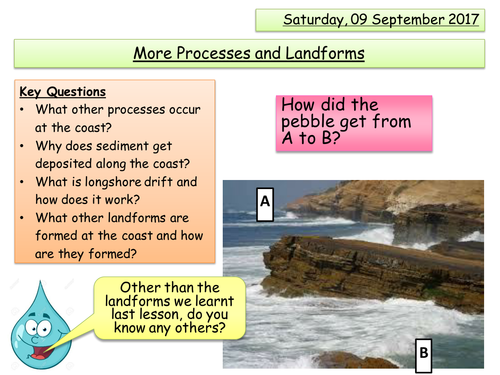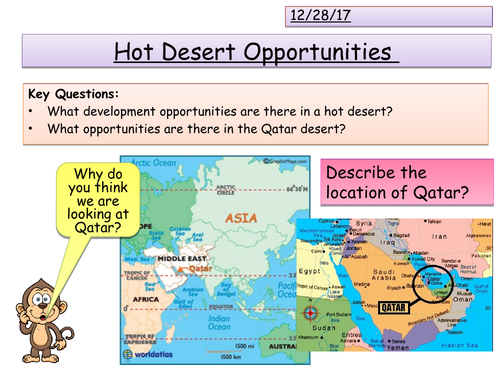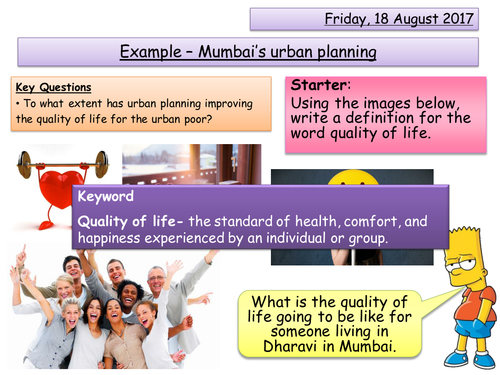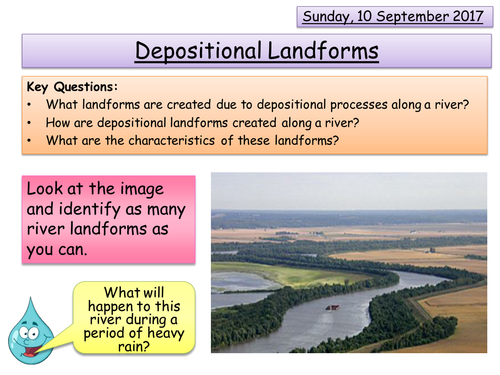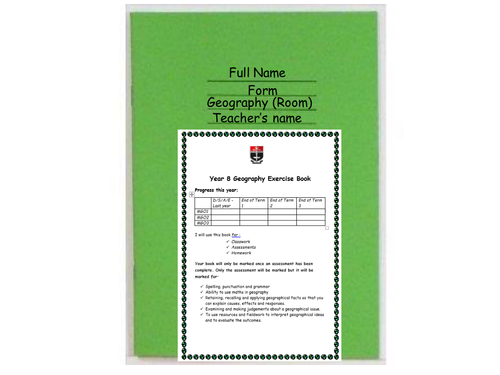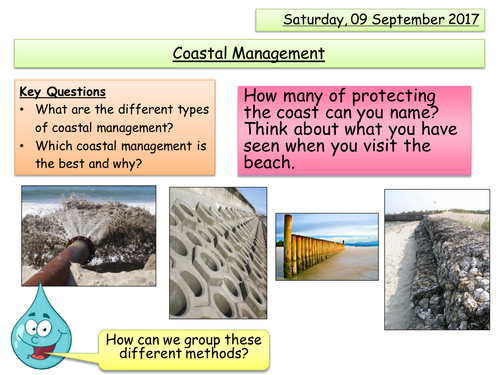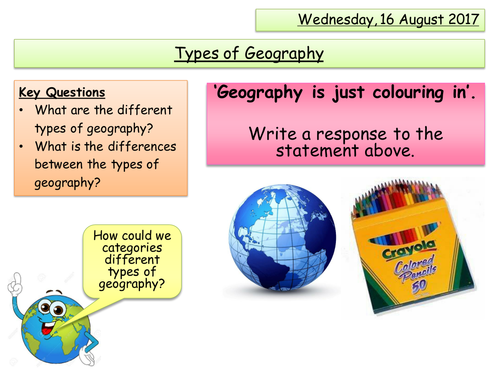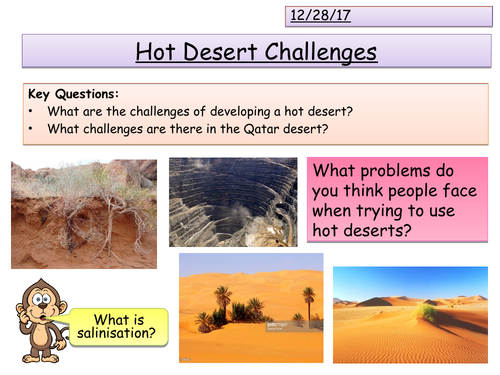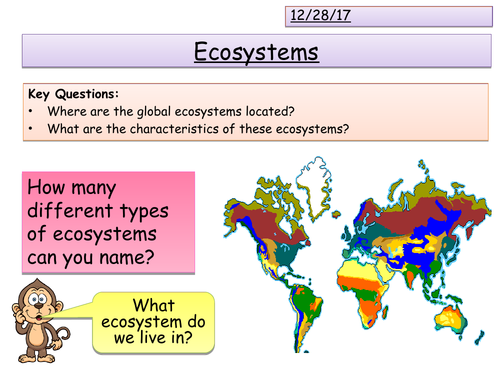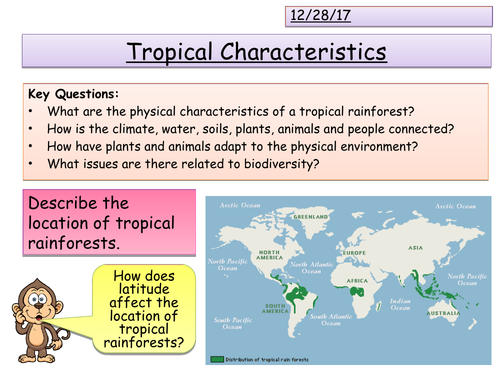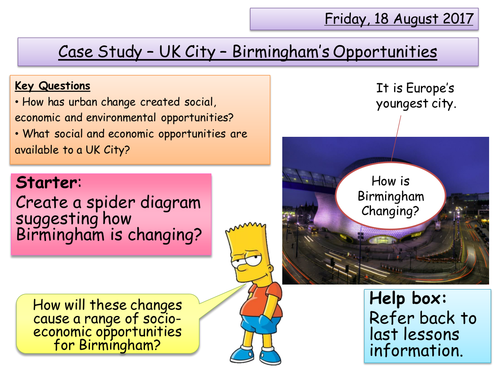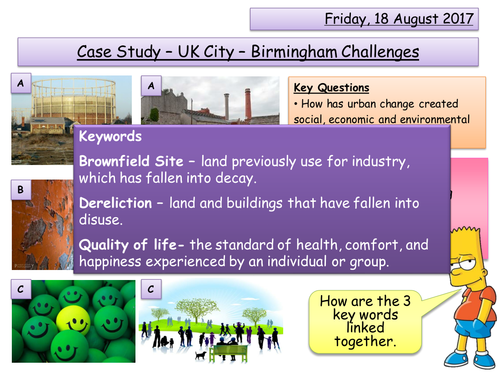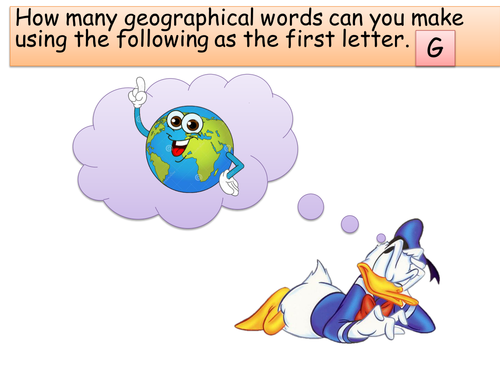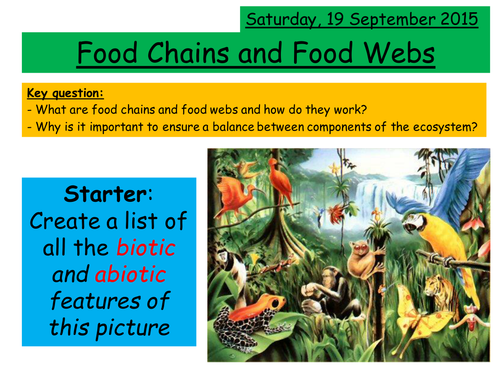
156Uploads
234k+Views
294k+Downloads
All resources

AQA Geography Paper 1 Revision Booklet
This is a comprehensive revision booklet based around AQA Geography Paper 1 exam.
The idea of this booklet is for students to complete a range of activities in a bit to aid their revision, before their exam. I originally created this booklet for PP students, however this this is more than suitable for anyone to complete. Please note all case studies and examples can be edited to match the ones you use.
Inside the booklet you will see activities for the following units:
The challenge of natural hazards
The living world (Rainforests and Hot deserts)
Physical Lanscapes of the UK (Coasts and Rivers)

Tourism in Thailand
This lesson is the fifth in a sequence of lessons for the topic Asia. This lesson aims to get students to think about the following:
How tourism in Thailand has changed over time
The link between tourism and GDP
Why people visit Thailand
The impacts of tourism on Thailand

Transportation and Depositional Landforms
This lesson aims to allows students to gain an understanding of longshore drift, deposition, and depositional landforms.
By the end of the lesson students will be able to answer the following questions:
- What other processes occur at the coast?
- Why does sediment get deposited along the coast?
- What is longshore drift and how does it work?
- What other landforms are formed at the coast and how are they formed?

Desert Opportunities - Qatar
This lesson is based around the new AQA GCSE specification. This is a lesson in the unit titled Living World. The main aim of this lesson is to cover the following element of the specification:
A case study of a hot desert to illustrate:
- Development opportunities in hot desert environments: mineral extraction, energy, farming, tourism
NOTE - When it refers to page numbers please refer to the information provided.

Urban Planning - Mumbai
This lesson is based around the new AQA GCSE Specification. This is a lesson in the unit titled Urban Issues and Challenges. The main aim of this lesson is cover the following element of the specification:
An example of how urban planning is improving the quality of life for the urban poor.
NOTE = This lesson follows on nicely from the major city lessons which focus on Mumbai.
Bundle

Extreme Environments
A variety of lessons that cover the unit Extreme Environments. This bundle contains 8 lessons and focuses on Hot Arid and Polar Regions, which are the key focus of the AQA GCSE specification.

Depositional Landforms - Rivers
This lesson is based around the new AQA GCSE specification. This is a lesson in the unit titled River landscapes in the UK. The main aim of this lesson is to cover the following element of the specification:
- Characteristics and formation of landforms resulting from deposition - levees, floodplains and estuaries.

Waves
This lesson aims to get students to gain an understanding of the different types of waves and to understanding the factors influencing tides.
By the end of the lesson students will be able to answer the following key questions:
- What causes tides?
- How are waves different?
- Why do waves break?
Bundle

Coasts
This bundle contains a whole unit of work for coasts. This unit is designed for year 8's and aims to give them the basic knowledge and skills in the lead up to GCSE's. In addition to lessons, this bundle contains assessments and fieldwork that can be carried out.

Coastal Management
This lesson aims to allow students to gain an understanding of the different ways to manage the coast. It looks at a range of soft and hard engineering strategies, and encourages students to think about the advantages and disadvantages of these strategies, before debating which of these would be the best for a particular coast (this lesson uses Southend but this can easily be changed for a different location).
By the end of the lesson students will be able to answer the following key questions:
- What are the different types of coastal management?
- Which coastal management is the best and why?

Atlas Challenge
This lesson aims to get students use to using an atlas and being able to identify countries, towns, cities and oceans using the index of an Atlas. In addition to this it teaches students how to write an accurate geographical description. By the end of the lesson students will be able to answer the following key questions:
How do we use an atlas to find places?
How do we write a geographical description?

Types of Geography
This lesson aims to show students the 3 different types of geography: physical, human and environmental. Students will be able to answer the following key questions by the end of the lesson:
What are the different types of geography?
What is the differences between the types of geography?
NOTE - I do not own the rights to the video.

Challenges of Deserts - Qatar
This lesson is based around the new AQA GCSE specification. This is a lesson in the unit titled Living World. The main aim of this lesson is to cover the following element of the specification:
A case study of a hot desert to illustrate:
- Challenges of developing hot desert environments: extreme temperatures, water supply, inaccessibility.
NOTE - When it refers to page numbers please refer to the information provided.

Global Ecosystems
This lesson is based around the new AQA GCSE specification. This is a lesson in the unit titled Living World. The main aim of this lesson is to cover the following element of the specification:
- An overview of the distribution and characteristics of large scale natural global ecosystems.
NOTE - When it refers to page numbers please refer to the information provided.

Tropical Rainforests Characteristics
This lesson is based around the new AQA GCSE specification. This is a lesson in the unit titled Living World. The main aim of this lesson is to cover the following element of the specification:
- The physical characteristics of a tropical rainforest.
- The interdependence of climate, water, soils, plants, animals and people.
- How plants and animals adapt to the physical conditions.
- Issues related to biodiversity.
NOTE - When it refers to page numbers please refer to the fact file provided.

Major UK City - Birmingham Opportunities
This lesson is the first part of the major UK city you must cover in the new AQA GCSE specification. This lesson aims to cover the following element from the specification:
How urban change has created opportunities:
• social and economic: cultural mix, recreation and
entertainment, employment, integrated transport systems
• environmental: urban greening
NOTE = When it refers to page numbers, please use the factfile attached

Major UK City - Birmingham's Challenges
This lesson is the first part of the major UK city you must cover in the new AQA GCSE specification. This lesson aims to cover the following element from the specification:
How urban change has created challenges:
• social and economic: urban deprivation, inequalities in housing,
education, health and employment
• environmental: dereliction, building on brownfield and
greenfield sites, waste disposal
• the impact of urban sprawl on the rural–urban fringe, and the
growth of commuter settlements.

Mitigating Climate Change
This lesson aims to get students to think about the different way we can mitigate climate change. These include; Alternative energy, carbon capture, replanting trees and international agreements.

Natural Causes of Climate Change
This lesson aims to get students to think about the 3 main theories behind the natural causes of climate change; Orbital Theory, Solar Output Theory and Eruption Theory.

Food Chains and Food Webs
This lesson aims to get students to understand what a food chain and food web are, in addition to gaining an understanding of why it is important to understand the balance in an ecosystem.



